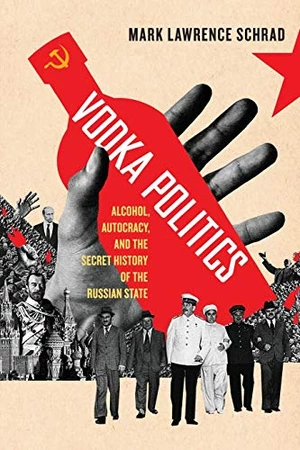Alcohol-and alcoholism-have long been prominent features in Russian life and culture. But as Mark Schrad vividly shows in Vodka Politics, it has also been central to Russian politics. From the tsars to Putin, almost every Russian ruler has utilized alcohol to strengthen his governing power. Tsars used alcohol to exert control over their courts, and the government's monopoly over its sale provided a crucial revenue stream from late Tsarist times through most of the Soviet era. As Schrad reveals, Tsar Nicholas II's decision to ban alcohol in 1914 was a contributing factor to the 1917 revolution. After the revolution, history seemed to replay itself. Once Stalin achieved power, he used alcohol to control his court, and the Soviet state relied heavily on alcohol revenues throughout its existence. The decision by Gorbachev to crack down on alcohol consumption in the 1980s exacerbated the Soviets' fiscal crisis, and played a role in the 1991 collapse. Today, Russians continue to imbibe heavily, and the demographic consequences have been devastating. Chronic alcoholism has created a massive health crisis, and life expectancies for men are alarmingly low as a consequence. Not simply a chronicle of drinking in Russia, Vodka Politics shows how alcohol has been a key shaping force in Russian political history.
Price history
Oct 25, 2021
€17.72

